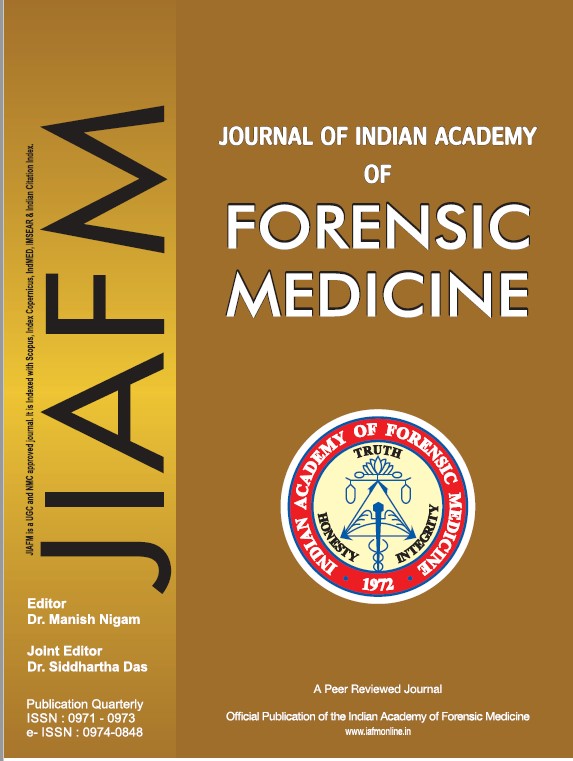Magnitude of Medicolegal Issues among People Who Inject Drugs in New Delhi: A Cross-Sectional Study
DOI:
https://doi.org/10.48165/Keywords:
People who inject drugs, Opioid substitution therapy, Medicolegal issues, Criminal activities, Suicide, Forensic Psychiatry.Abstract
Besides posing a significant health burden, people who inject drugs (PWID) are also implicated in violence, acquisitive crimes, accidents, and suicides. This cross-sectional, observational study was conducted from November 2016 to March 2018 at a tertiary care centre of New Delhi.The data on medicolegal issues and their characteristics were collected through an interviewer-administered structured questionnaire from PWID receiving opioid substitution therapy (OST), and statistical analysis was performed using descriptive statistics and chi-square test. Out of 100 male PWID, nearly half of PWID (n=48, 48%) were involved in criminal activities. Among the population of PWID with criminal activities, acquisitive crimes were the most common (n=37, 37%) type of crime committed. About 29 (29%) PWID revealed suicidal ideations, 12 (12%) attempted suicides, and about one in five (n=21, 21%) PWID had nonsuicidal self-injuries (NSSI) in the preceding year. A statistically significant association was observed between the history of injecting drug use in the preceding three months with the criminal activities of the user (χ2=3.853; p=.050). Acquisitive crimes were significantly associated with homelessness (χ2=5.884; p=.015). The evidence from the present study suggests that acquisitive crimes, suicidal ideations, and self-harm are highly prevalent among PWID. Efforts should be focused on strict adherence to OST with effective psychiatric counselling, family therapy, and social assistance programs to mitigate PWID's medicolegal issues at large.


